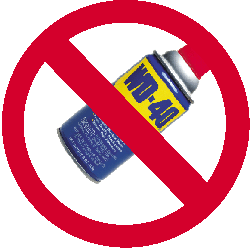Goonch
Goonch's JournalAsk or aks? How linguistic prejudice perpetuates inequality
Teacher and artist Sunn M'Cheaux has been posting on social media about “linguicism” after a reader asked him about the word “ax”, saying: “Why did we struggle saying ‘ask’? Like when I was little, I always said ‘ax’. Like I couldn’t say the word correctly.”
M'Cheaux’s response counters the common idea that “ax” (spelled also “aks”) is incorrect: “ax” isn’t a mispronunciation of “ask” but an alternative pronunciation. This is similar to how people might pronounce “economics” variously as “eck-onomics” or “eek-onomics”, for example. Neither of these pronunciations is wrong. They’re just different.
Linguicism is an idea invented by human-rights activist and linguist Tove Skutnabb-Kangas to describe discrimination based on language or dialect. The prejudice around “aks” is an example of linguicism.
Decades of research shows that the idea that any variation from standard English is incorrect (or, worse, unprofessional or uneducated) is a smokescreen for prejudice. Linguicism can have serious consequences by worsening existing socio-economic and racial inequalities.
Flawed argument
Pegging “ax” as a mark of laziness or ignorance presumes that saying “aks” is easier than saying “ask”. If this were the case, we would – and we never do – hear “desk”, “flask” and “pesky” pronounced “deks”, “flaks” and “peksy”.
The “s” and “k” being interchanged in “aks” and “ask” is an instance of what linguists call metathesis – a process which is very common. For example, wasp used to be pronounced “waps” but the former has now become the go-to word. Many of the pronunciations bemoaned as “wrong” are in fact just examples of language changing.
“Aks” has origins in Old English and Germanic over a millennium ago, when it was a formal written form. In the first English Bible – the Coverdale Bible, from 1535 – Matthew 7![]() was written as “Axe and it shall be given you”, with royal approval.
was written as “Axe and it shall be given you”, with royal approval.
Beyond written English, “aks” was also the typical pronunciation in England’s south and in the Midlands. “Ask”, meanwhile, was more prevalent in the north and it is the latter that became the standard pronunciation.
Contemporary prevalence
In North America, “aks” (or “ax”) was widely used in New England and the southern and middle states. In the late 19th century, however, it became stereotyped as exclusive to African American English, in which it remains prevalent. American linguist John McWhorter considers it an “integral part of being a black American”.
Today, “aks” is also found in UK varieties of English, including Multicultural London English. This dialect, spoken mainly by people from ethnic minority backgrounds, came about through contact between different dialects of English and immigrant languages, including Caribbean Creoles, such as Jamaican Creole.
Multicultural London English was initially referred to in the media in a derogatory fashion as “Jafaican”. That label wrongly reduced the dialect to something imitated or used inauthentically..........
https://theconversation.com/ask-or-aks-how-linguistic-prejudice-perpetuates-inequality-175839
;-{)🖖
&list=RDSKIf-riBks0&start_radio=1UPS Launches Cargo eBike Delivery in Seattle
&t=4sProfile Information
Member since: Wed Nov 5, 2008, 08:50 PMNumber of posts: 3,614







